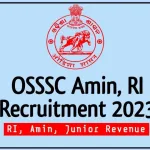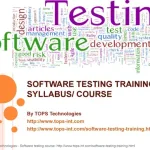Getting ready for the TCS National Qualifier Test (NQT) 2025 can feel overwhelming if you’re not sure what topics are included in the syllabus. The good news is that the syllabus is clearly structured and is designed to test your cognitive abilities, reasoning, communication, programming, and coding skills. This exam is the first step for many students to secure a job with TCS or other companies that accept NQT scores.
Below, you’ll find a section-by-section breakdown of the TCS NQT 2025 syllabus, along with details about the exam pattern, important topics, and preparation strategies.
Purpose of the TCS NQT Syllabus
The TCS NQT exam is meant to evaluate a candidate’s overall job readiness. Instead of testing only technical skills, it covers a mix of aptitude, reasoning, communication, and coding. The idea is to ensure that candidates have the right balance of problem-solving, logical thinking, and technical knowledge required for today’s workplace.
TCS NQT 2025 Syllabus Breakdown
The exam is divided into five main sections:
1. Cognitive Skills (Aptitude Section)
This section tests your ability to think logically, solve problems, and manage numbers efficiently.
Topics Covered:
-
Quantitative Aptitude: Number system, profit & loss, ratio & proportion, averages, percentages, simple & compound interest, time & work, time, speed & distance, permutations & combinations, probability.
-
Logical Reasoning: Series completion, blood relations, coding-decoding, puzzles, syllogisms, seating arrangement, analogies, direction sense, data sufficiency.
-
Data Interpretation: Tables, charts, graphs, and case-based data problems.
Skills Developed: Analytical ability, problem-solving approach, time management.
2. Verbal Ability (English Proficiency)
This section measures your communication and comprehension skills.
Topics Covered:
-
Reading comprehension passages
-
Synonyms and antonyms
-
Sentence correction and grammar usage
-
Spotting errors
-
Fill in the blanks
-
Vocabulary-based questions
Skills Developed: Stronger communication, grammar knowledge, and professional writing ability.
3. Programming Logic
This section checks your understanding of the basics of programming and logic building.
Topics Covered:
-
Fundamentals of C, C++, Java, Python basics
-
Data types and operators
-
Functions and recursion
-
Arrays and strings
-
Pointers and memory allocation
-
Object-oriented programming basics
-
Flowcharts and pseudocode
Skills Developed: Logical problem solving, programming fundamentals, ability to write clean and optimized code.
4. Coding Section
This is the hands-on programming part where you solve real coding problems.
Topics Covered:
-
Solving 1–2 coding problems using C, C++, Java, or Python
-
Problems may involve strings, arrays, matrices, recursion, sorting, searching, and optimization-based coding challenges.
Skills Developed: Practical coding ability, debugging, applying data structures and algorithms.
5. Specialization Test (Optional/Role-Specific)
For some roles, TCS also tests additional skills.
Possible Areas:
-
Advanced coding
-
Domain-specific knowledge (IT, networking, database, cloud, etc.)
-
Hands-on projects and applied programming
TCS NQT 2025 Exam Pattern
Here’s what you can expect in terms of question types and weightage:
-
Cognitive Skills: MCQs (multiple-choice questions) – about 26 questions
-
Verbal Ability: MCQs – about 24 questions
-
Programming Logic: MCQs – about 10–12 questions
-
Coding: 1–2 coding questions to be solved in C, C++, Java, or Python
-
Duration: Around 180 minutes (varies slightly depending on role-specific tests)
-
Question Types: MCQs and hands-on coding
-
Marking Scheme: No negative marking (as per recent patterns)
Recommended Study Materials
To prepare well, here are some useful resources:
-
Books:
-
Quantitative Aptitude by R.S. Aggarwal
-
A Modern Approach to Logical Reasoning by R.S. Aggarwal
-
Objective General English by S.P. Bakshi
-
-
Programming Resources:
-
GeeksforGeeks for coding practice
-
HackerRank and LeetCode for mock coding challenges
-
-
Mock Tests: TCS NQT official sample papers and online test series
Tips to Stay Organized and Prepare
-
Create a Study Plan: Dedicate 2–3 hours daily for aptitude and reasoning, 1 hour for verbal, and at least 1–2 hours for coding practice.
-
Use Timed Practice: Since the exam is time-bound, practice solving questions within a set time limit.
-
Revise Regularly: Keep a revision notebook for formulas, shortcuts, and coding syntax.
-
Focus on Weak Areas: Identify whether aptitude, coding, or verbal is your weaker section and give it extra attention.
-
Mock Exams: Take at least 3–4 full-length mock tests before the real exam to build confidence.
Final Words
The TCS NQT syllabus 2025 is a perfect balance of aptitude, reasoning, communication, and programming skills. By breaking down the exam into sections and practicing step by step, you can build confidence and perform well. Remember, consistency and smart preparation are the keys to success in TCS NQT.
FAQ for tcs nqt syllabus
Q1. What is the syllabus for TCS NQT 2025?
The TCS NQT 2025 syllabus includes Cognitive Skills (Quantitative Aptitude, Logical Reasoning, Data Interpretation), Verbal Ability, Programming Logic, and Coding. Some roles may also include a specialization test.
Q2. Is the TCS NQT syllabus the same every year?
The core syllabus remains mostly the same, but small changes are made each year, especially in the coding and specialization sections.
Q3. How many coding questions are asked in TCS NQT?
Usually, there are 1–2 coding questions where you can choose languages like C, C++, Java, or Python.
Q4. Does TCS NQT have negative marking?
No, TCS NQT does not have negative marking, which allows students to attempt all questions without losing marks.
Q5. What is the exam pattern for TCS NQT?
The test includes MCQs for aptitude, reasoning, verbal, and programming logic, along with coding problems. The duration is around 180 minutes.
Q6. Which books are best for preparing the TCS NQT syllabus?
Popular choices include Quantitative Aptitude by R.S. Aggarwal, Objective General English by S.P. Bakshi, and coding practice on GeeksforGeeks and HackerRank.
Q7. Is English compulsory in TCS NQT?
Yes, the Verbal Ability section is compulsory as communication skills are an important part of the assessment.
Q8. How can I prepare for the coding section in TCS NQT?
Practice problems on arrays, strings, recursion, and basic data structures. Platforms like LeetCode and HackerRank are highly recommended.
Q9. Is the TCS NQT syllabus the same for all roles?
The base syllabus (cognitive, verbal, programming logic, and coding) is the same, but additional specialization tests may be added depending on the job role.
Q10. Can TCS NQT scores be used for other companies?
Yes, many companies apart from TCS accept NQT scores for their hiring process, making it useful beyond just TCS jobs.
Latest Posts
- Step-by-step guide to download and apply for jee mains admit card 202
- Comprehensive 2025 government holidays and recruitment details for job seekers
- JEE Mains Admit Card 2025: Your Step-by-Step Guide to Downloading the Hall Ticket
- Everything You Need to Know About 2025 Government Holidays Recruitment
- Comprehensive Guide to rrb d group recruitment 2025 – Eligibility, Vacancies, and Application
- Detailed guide to nps trust recruitment 2025 vacancies, eligibility and apply process
- Comprehensive guide to hpcl recruitment 2025 notification, vacancies, and application process
- ignou bed admission 2025 complete recruitment guide with eligibility and process
- Comprehensive Guide to Indian Army Agniveer Recruitment 2025 Notification and Jobs
- Everything You Must Know About CBSE Board Exams 2025 Changes & New Rules




